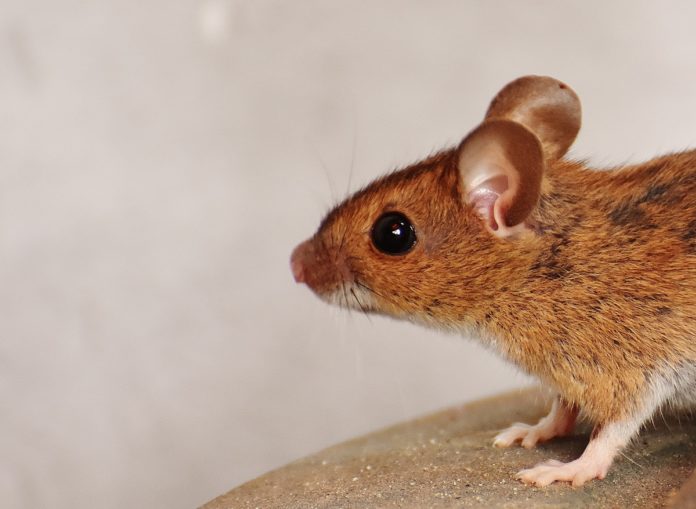Translated by Vasantha Surya
THAT they had done it for two nights in a row made Ganesan very angry. Without sparing a single morsel, the ladies of his household had polished the kitchen clean after the night’s meal and gone off to bed.
It was not as though they did not know any better. Sister was over 50, Wife was pushing 40, and Daughter was soon going to be 13. But not a scrap of dosai, or appalaam, not a sliver of coconut was left over.
What was he supposed to use as bait for the rat-trap?
“To hell with the lot of you!” muttered Ganesan, and went to bed himself.
He had hardly slept a half-hour when he heard the bamboo clothesline gently shaking. The rat was moving along its underside.
….Two minutes pass by. The bamboo line rattles a bit more. The rat is climbing on top of it. Now a brass tray can be heard banging against the wall. The rat has climbed into the loft. A crinkling, rustling sound … The rat is advancing steadily throug h a pile of old newspapers. Dhadak! The rat jumps down from the loft upon the wooden bureau, setting off a clanking and clattering among the empty tins stored on top of it. The rat springs from the bureau to the small wall-shelf hanging on a nail. Everyt hing is quiet for a while. As though in compensation, something is knocked over and comes tumbling down with a big crash … Both Ganesan and his wife get up. The light is switched on, and they look around. The rat has knocked down the lid of the oil jar .
With clenched teeth Ganesan stood glaring at his wife, who was sleepily putting the lid back on the jar and covering it with an upturned basket. “When I tell you, just keep some wretched thing or other left over, why do you daily polish off every bit like this?”
“Keep what? Should I keep a spoonful of rasam for the rat? Or maybe you can stick a lump of uppumaa on the hook?” she asked.
“Just what do you think of yourself?” demanded Ganesan, incensed.
“Me? I am not thinking anything. If there are dosais or adais, something can be saved for the rat. Daily in our house we are making dosais and adais, isn’t it?”
“Okay then, let the rat come daily! Let it spill and spoil everything!”
His wife did not reply. Instead she fished out a dried-up onion from the bottom of the vegetable basket and gave it to him. “Try this if you want.”
“When has any rat turned up to eat an onion like this?”
That onion he hurled at her must have caused her some pain. But she said nothing, and went back to bed.
Ganesan could not lie down. Every night in those two rooms, in that little space where the 10 of them could not sleep or eat at the same time, four or five rats cavorted and frisked about with the utmost freedom. The gnawed and ripped through the clothes, pulled off the lids and toppled the tins, burrowed into tomatoes and devoured the insides, drank up the cooking oil … They dragged away the wick of the oil lamp in the gods’ niche every single day, without fail.
He tossed on his shirt and put a quarter rupee into his pocket. Locking the front door behind him, he set out.
The regular hotels had all closed. Only tea-stalls and betel- shops were still open. If only he could find a vadai. Even half a vadai.
But nowhere were there any vadais left over. Bread, biscuits, bananas – only these remained, and they had all been tried out at one time or another. The rat had turned up its nose at all of them. Only oily things worked – deep-fried vadais, pakodas, pappadams. And at the price at which dal and oil were sold these days, how could such delicacies be made in the house? Rice uppumaa, rava uppumaa, pongal. Then pongal, rava uppumma, rice uppumma. After that, rava uppumaa, pongal, rice uppumaa. One after another after another, again and again – that was all that was to be had in that house, Ganesan was fed up with the very words “uppumaa” and “pongal”. That rat must have been fed up too.
Well, that rat’s in luck, it must have peered into a fox’s face first thing this morning, thought Ganesan. He turned homewards.
In the distant maidan, a public meeting was in progress. There were not more than 30 or 40 people present. Yet somebody was flinging his arms about and giving a speech. Why not listen for a while? Ganesan walked towards the crowd.
The speaker was issuing a stern warning to Nixon. Another stern warning to China … then to Britain, and to Russia. One to Pakistan. Then came a dire ultimatum to Indira Gandhi. Yet another, to the leaders of Tamil Nadu … If a hundredth part of these terrifying threats could only reach a rat class, the whole pack of them would flee and seek asylum in the Bay of Bengal. Why didn’t rats understand the Tamil language?
But something else was more to Ganesan’s purpose than such talk. A little away from the crowd, several people were standing around a pushcart on which a stove had been fixed. With a long perforated ladle, sizzling hot snacks were being taken out of bubbling peanut oil and placed on a tray from which they were being sold off in bare seconds.
Ganesan went and stood near the pushcart. Like submarines immersed in the ocean, 20 chillies doused in batter were frying in the oil. A man nearby kept saying, “Make vadais, ayya! Vadais” But the next time round it was chilli bajjis again. Ganesan, too, said “Make vadais, ayya! There seemed to be a great demand for chilli bajjis. One fellow got out of a car, ordered “Pack up eight bajjis,” and went to urinate into the darkness.
“Make vadais this time, ‘ya,” said Ganesan again. The moment the chillies were taken out of the oil, they were wrapped in pieces of newspaper and parcelled off immediately in twos, fours, even tens.
“Did you ask for vadais, saar? How many do you want?”
Ganesan felt hesitant to say he wanted just one. “Two is enough,” he said.
“Then I will fry them next time around.” Again it was chillies that were lowered into the oil. The man who had been demanding vadais for quite some time began to protest belligerently.
“Here, this lot is almost done, saar. Only one more minute! See, that gentleman over there is also waiting for vadais!”
An uneasy feeling came over Ganesan. There was a sizeable crowd around the cart. Everybody was waiting for their orders. Waiting to eat … They must be thinking he too was waiting just as eagerly to eat his vadais. If they only knew that the vadai was for a rat trap! He felt very unhappy.
When they were fried and ready at last, it was to him that two vadais were first given, on a piece of Maalai Murasu, the eveninger. The hot oil soaked through the paper and smeared his palm. They smelt very good, those two vadais. There were fragments of ground white dal sticking out of their tops.
Ganesan walked homewards. Unable to bear the heat, he had to keep tossing the vadais from one hand to the other. Hands and paper were all greasy. That pushcart vendor – poor fellow – could not have known his vadais were destined to be eaten by a rat. Ganesan would not have felt as bad about it if the vadais had been made in his own house. Now he felt quite troubled.
Impossible, without ruining his shirt, to take the key out of his pocket with his oily hands. He put the vadais down and wiped the oil on his shins and the loose, slack flesh of his calves. Going into the house he stuck one vadai on the hook of the rat trap. The other one he ate …
When a man over 50 eats a vadai at 10 o’clock in the night, there are bound to be consequences. But he made himself think of them as a kind of expiation. He lay down, and at last slept off.
Morning. Ganesan’s stomach was in utter chaos. The rat had got caught in the trap and made a terrible racket all through the night. He himself knew nothing about it; it was his wife who told him.
Now the rat had to be taken somewhere and let loose. He picked up the trap and set out. The rat poked its nose out of a little hole in the trap. From that nose it could not be made out if it were a big rat, or a small one. However, if it could knock down a tin of flour, topple the lid off the oil jar, chew up soiled clothes, and gnaw at vegetables, what difference did it make whether it was big or small?
Not the gutter this time, thought Ganesan, and bore it off to the maidan. It would take at least a week for this particular rat to find the house again. Not that its absence mattered much. There were other rats.
Can’t these boys move off a bit, thought Ganesan. But they were waiting for him to open the rat-trap. He put it down on the ground and gently pressed the handle of the lid. The rat ran out. It was neither very big nor very small. Unaccustomed to wide open spaces it rushed around confusedly in all directions. One of the boys threw a stone.
“No, boy!” cried Ganesan.
Just then a crow came flying out of nowhere, pecked once at it and flapped off. The rat lay twitching on its back, then scrambled up and dragged itself along even faster. Above, the crow circled once, and then swooped swiftly down. The rat had nowhere to hide itself. The crow now snapped it up and carried it away. Ganesan felt a pang.
Something else made him even sadder. When he picked up the trap and turned to go home, he took a look inside. The vadai he had stuck on the hook the night before still hung there, uneaten.
Translator’s note: The eatables referred to in this story are common South Indian main dishes and “tiffins” or snacks based on rice and dal. Apart from the well-known dosai, there is the adai, a thicker lentil pancake, and the appalaam, which is lentil crisp. Rasam is a clear lentil soup. Uppumaa is a broken wheat savoury, pongal is a sweet or savoury mash of rice and dal. Vadais, pakodas, and pappadams are all deep-fried snack foods.
Acknowledgement:
Original Tamil story appeared in Kanaiyazhi, 1972.
The above English translation appeared in The Hindu, Sep 3, 2000
About the author:
Ashokamitran (September 22, 1931 – March 23, 2017) was the pen name of Jagadisa Thyagarajan, an Indian writer regarded one of the most influential figures in post-independent Tamil literature. He began his prolific literary career with the prize winning play “Anbin Parisu” and went on to author more than two hundred short stories, and a dozen novellas and novels. A distinguished essayist and critic, he was the editor of the literary journal “Kanaiyaazhi”. He has written over 200 short stories, eight novels, some 15 novellas besides other prose writings. Most of his works have also been translated into English and other Indian languages, including Hindi, Malayalam, and Telugu.



















